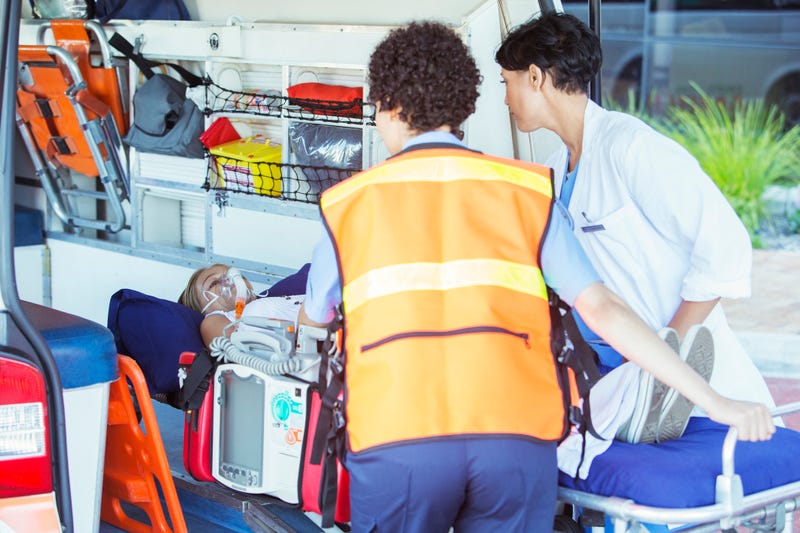
North Texas ended a streak of 21 straight days of triple digit high temperatures Monday, but the National Weather Service predicts a high of 108 degrees Thursday and for high temperatures to stay above 100 at least into early next week.
Through Monday, DFW Airport had recorded 36 days with highs of at least 100 in 2023, including 21 consecutive days, a tie for the sixth longest streak with a stretch in July and August in 2022.
MedStar, an ambulance provider in Fort Worth and 14 neighboring cities,
treated 27 patients for heat-related illness over the weekend. Of those, 23 went to the hospital, and five were in critical condition.
Monday, MedStar treated ten people, and one went to the hospital in critical condition.
"The calls have just increased more and more as these temperatures stay warm," says paramedic Nathan Brock.
The organization says one of the patients was an elderly woman whose air conditioner had failed in her home.
"Check on the elderly. Check on your neighbors," Brock says. "Make sure they're doing okay. If you notice anything out of the ordinary, go ahead and call 911. Let us come out, let us assess the situation. If we need to, we can get them to the hospital for the time being so they can cool off."
Brock says MedStar crews are now preparing for heat calls before they start their shift.
"We stock more ice packs; we've got cold packs," he says. "We've got two air conditioners in the back of the ambulance, and we make sure they're functioning before we head out on the street."
Brock says they also carry bottled water in coolers.
"As we're driving by and see a construction worker, we'll hand out a nice, cold bottle of water," he says. "Some of the calls we go out on are homeless people who are stuck outside. We'll give them water."
MedStar says heat-related calls have been concentrated near the homeless shelters south of downtown, near hospitals, in the eastern part of downtown near Fort Worth Central Station and in construction zones.
Brock says MedStar tracks those numbers and stages ambulances in areas the organization receives the most calls. He says that can allow for a quicker response time.
"The ideal thing with someone being out in the heat is to get them cooled down as fast as possible," he says. "If we don't do that, that creates another set of problems for the patient."
Brock says the air conditioners are set to keep the ambulances 70 degrees or cooler.
He says paramedics then place ice packs in key places on the patient, including the back of the neck and armpits. Brock says the ice packs and bottled water can help patients stay awake so crews can learn if they have any medical conditions that could put them at greater risk.
"The one thing we really look at is any kind of heart condition because once the temperature gets high, the heartbeat starts to race really fast," he says.
Brock says crews will also talk to others nearby who might know the person.
For others who work outside, he says people can avoid dehydration by drinking sports drinks with electrolytes. Pickle juice, because of its sodium and potassium, can also help people stay hydrated.
"When we sweat, we sweat out a lot of salt, and that's very sensitive to the heart," he says. "Drink your Gatorade, drink your Powerade. Make sure you're taking breaks, 15 minutes, 45 minutes. Just sit down, take a drink of water, cool off and go back at it. If you ever feel lightheaded, dizzy, headaches, tell somebody. Ask for an extended break from your boss, or if you can get into a building, go in, walk around and cool down a little bit. If it's really bad, don't hesitate, call 911."
LISTEN on the Audacy App
Tell your Smart Speaker to "PLAY 1080 KRLD"
Sign Up to receive our KRLD Insider Newsletter for more news

